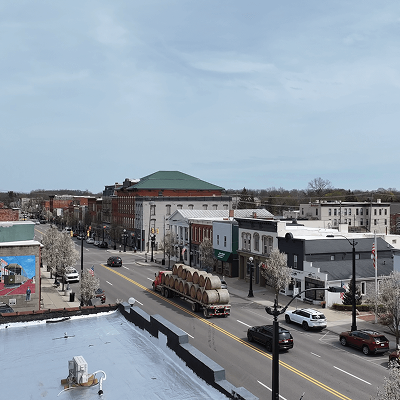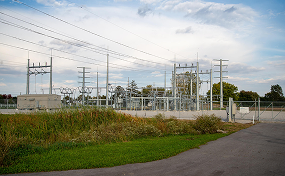Member Spotlight
American Municipal Power has more than 130 Members that represent a broad cross-section of the public power community. AMP’s Member spotlights provide more in-depth information about the history and operations of individual Members.
-
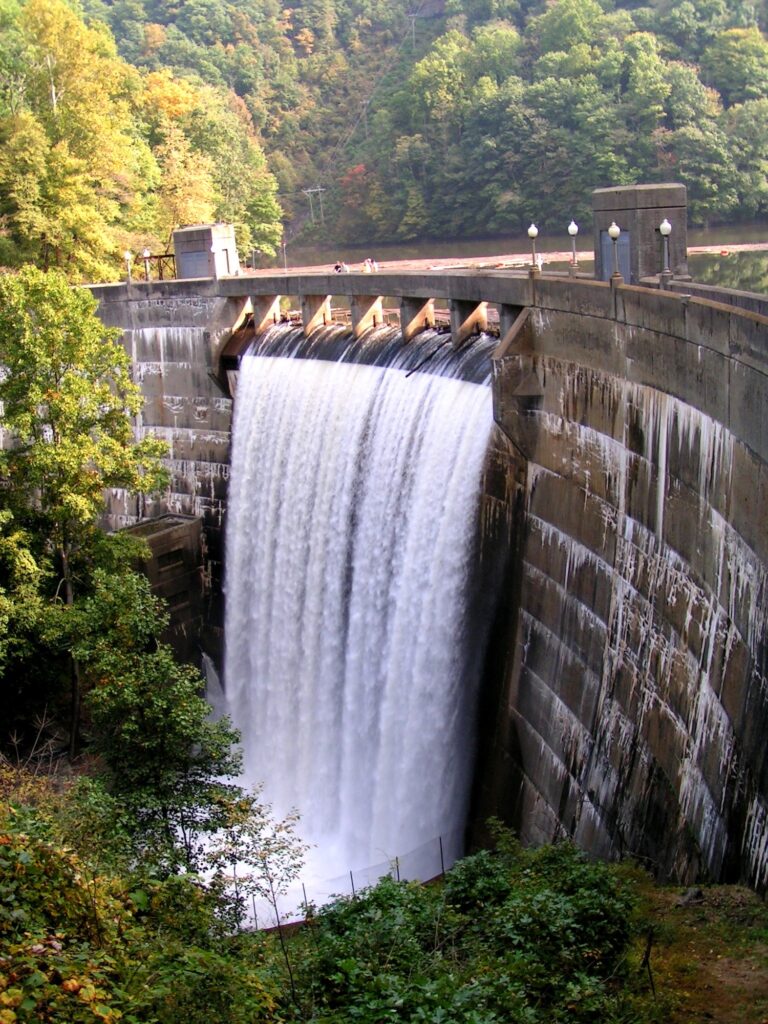 Published on January 1, 2023
Published on January 1, 2023Danville, Virginia 2023
Published January 2023 By Tucker King – communications intern Once known as a center for tobacco and textiles production, Danville…
-
Published on January 1, 2022
Marshall, Michigan 2022
Published January 2022 By Zachary Hoffman – manager of communications and publications In their book Images of American: Marshall, authors…
-
Published on December 1, 2020
Paducah, Kentucky
Published December 2020 Situated on the banks of the Tennessee and Ohio rivers, the City of Paducah is a central…
-
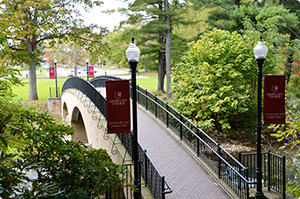 Published on January 1, 2020
Published on January 1, 2020Grove City, Pennsylvania
Published January 2020 Top ranking borough Grove City was recently ranked as one of America's top five cities to live…
-
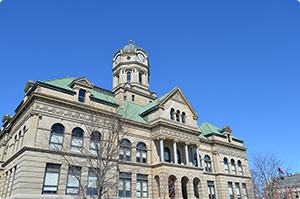 Published on October 1, 2019
Published on October 1, 2019Wapakoneta, Ohio
Published October 2019 On July 20, 1969, at 10:56 p.m., Neil Armstrong uttered one of the most famous sentences in…
-
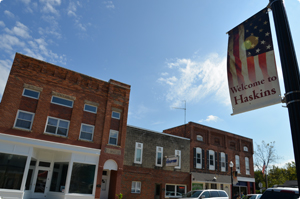 Published on April 1, 2019
Published on April 1, 2019Haskins, Ohio
Published April 2019 Located in Wood County, Haskins was incorporated in 1869 and named for Whitcomb Haskins, a distant relative…
-
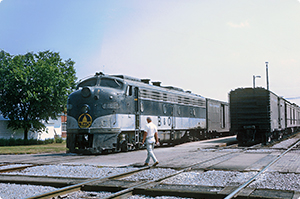 Published on January 1, 2017
Published on January 1, 2017Deshler, Ohio
Published January 2017 The Village of Deshler is located in Henry County in northwest Ohio. Originally named Portage following the…
-
Published on October 1, 2016
Cannelton, Indiana
Published October 2016 The City of Cannelton joined AMP in 2014, and is located in the southern region of Indiana…
-
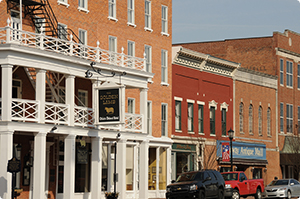 Published on July 1, 2016
Published on July 1, 2016Lebanon, Ohio
Published July 2016 Settled in the 1790s, the City of Lebanon was named for its abundance of juniper trees, which…
-
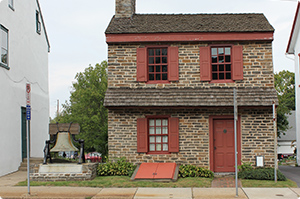 Published on April 1, 2016
Published on April 1, 2016Quakertown, Pennsylvania
Published April 2016 The Borough of Quakertown spans two square miles, but what it lacks in size, it makes up…
-
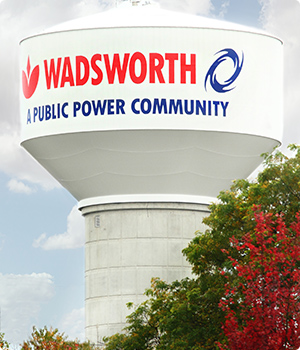 Published on January 1, 2016
Published on January 1, 2016Wadsworth, Ohio
Published January 2016 Founded in 1814, Wadsworth, Ohio, was named for Revolutionary War hero General Elijah Wadsworth, who owned a…
-
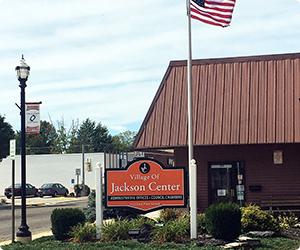 Published on October 1, 2015
Published on October 1, 2015Jackson Center, Ohio
Published October 2015 The fourth largest municipality in west-central Ohio's Shelby County, Jackson Center continues to be a growing community…
-
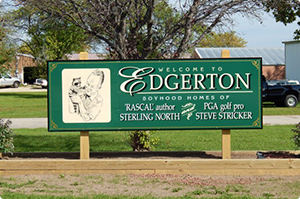 Published on June 1, 2015
Published on June 1, 2015Edgerton, Ohio
Published June 2015 The Village of Edgerton was officially incorporated in 1865 and is celebrating its 150th birthday July 20-26,…
-
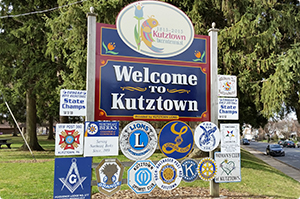 Published on April 1, 2015
Published on April 1, 2015Kutztown, Pennsylvania
Published April 2015 The second oldest borough in Berks County, Kutztown was incorporated in 1815 and is celebrating its bicentennial…
-
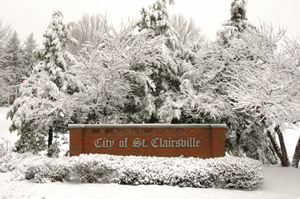 Published on March 1, 2015
Published on March 1, 2015St. Clairsville, Ohio
Published March 2015 Located about 11 miles from the Ohio River in the rugged hills of eastern Ohio, St. Clairsville…
-
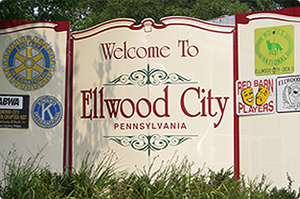 Published on January 1, 2015
Published on January 1, 2015Ellwood City, Pennsylvania
Published January 2015 The Borough of Ellwood City is located in the southern most portion of Lawrence County, about 40…
-
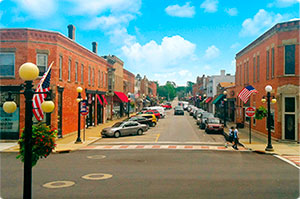 Published on December 1, 2014
Published on December 1, 2014Amherst, Ohio
Published December 2014 The first land clearing in the Amherst area was completed by Jacob Shupe in 1811. Shupe built…
-
Published on August 1, 2014
Pioneer, Ohio
Published August 2014 Close-knit community The Village of Pioneer was founded in 1849 by P.W. Norris. Early business in the…
-
Published on June 1, 2014
Oak Harbor, Ohio
Published June 2014 The Village of Oak Harbor, Ohio, located in the hub of the industrial Midwest, grew from land…
-
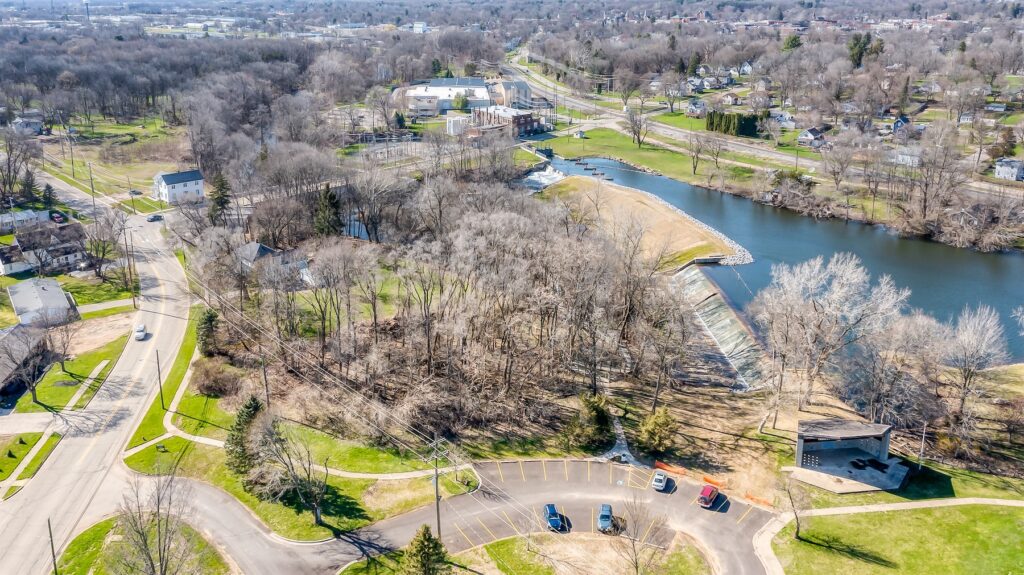 Published on May 15, 2014
Published on May 15, 2014Marshall, Michigan
Published May 2014 Named in honor of Chief Justice John Marshall of Virginia, who served in office from 1801-1835, the…
-
Published on April 1, 2014
Orrville, Ohio
Published April 2014 Orrville was incorporated in 1864 and 2014 marks the sesquicentennial of the city. Special events will be…
-
Published on March 1, 2014
Royalton, Pennsylvania
Published March 2014 What is now the Borough of Royalton was originally home to several groups of American Indians, including…
-
Published on February 15, 2014
Bryan, Ohio
Published February 2014 The city of Bryan is a community at the center of life in northwestern Ohio, located just…
-
Published on January 1, 2014
Princeton, Kentucky
Published January 2014 Princeton, Kentucky, is a welcoming city with a relaxed atmosphere. Originally named Princetown in 1817 in honor…
-
Published on November 1, 2013
Piqua, Ohio
Published November 2013 What is now Piqua was an important American Indian settlement and trading post prior to European-American settlers.…
-
Published on October 1, 2013
Elmore, Ohio
Published October 2013 The Village of Elmore is a family-friendly community that has maintained its small-town atmosphere, while still being…
-
Published on September 1, 2013
New Wilmington, Pennsylvania
Published September 2013 This year marks the sesquicentennial of New Wilmington Borough. The town was established in 1797-98 and was…
-
Published on July 1, 2013
Oberlin, Ohio
Published July 2013 The history of the City of Oberlin is filled with strong alliances among community partners. The city…
-
Published on June 1, 2013
Columbus, Ohio
Published June 2013 The City of Columbus has a niche for whatever pace of life suits your mood – from…
-
Published on May 1, 2013
Carey, Ohio
Published May 2013 The Village of Carey is a small community located in northwest Ohio about halfway between Columbus and…
-
Published on April 1, 2013
Martinsville, Virginia
Published April 2013 Martinsville is a place of beautiful surroundings. Destinations such as Philpott Lake, Fairy Stone State Park, Smith…
-
Published on February 1, 2013
Ephrata, Pennsylvania
Published February 2013 Ephrata Borough is the location of choice in northern Lancaster County. The borough offers an outstanding variety…
-
Published on January 1, 2013
Niles, Ohio
Published January 2013 The City of Niles prides itself as a place that offers "big city" amenities, but with a…
-
Published on October 1, 2012
Lodi, Ohio
Published October 2012 The Village of Lodi has retained the charm and flavor of a country village. Lodi is located…
-
Published on August 1, 2012
Front Royal, Virginia
Published August 2012 As the northern gateway to the Shenandoah Valley, in northwestern Virginia, the Town of Front Royal sits…
-
Published on July 1, 2012
Westerville, Ohio
Published July 2012 Named for New York natives Matthew and Peter Westervelt, who bought 890 acres of land in 1816…
-
Published on July 1, 2012
Williamstown, Kentucky
Published July 2012 The City of Williamstown, located in northern Kentucky with easy access to Lexington, Louisville and Greater Cincinnati,…
-
Published on April 1, 2012
Bowling Green, Ohio
Published April 2012 The city of Bowling Green, Ohio, is steeped in a tradition of energy development, dating back to…
-
Published on January 1, 2012
Cuyahoga Falls, Ohio
Founded in 1812, the City of Cuyahoga Falls is best known for its series of Cuyahoga River waterfalls that run…
-
Published on January 1, 2012
Milan, Ohio
Published January 2012 The Village of Milan, Ohio is best known as the birthplace of Thomas Alva Edison, who not…
-
Published on January 1, 2012
Napoleon, Ohio
Published January 2012 The City of Napoleon, located in Northwest Ohio, is the county seat of Henry County. The city…
-
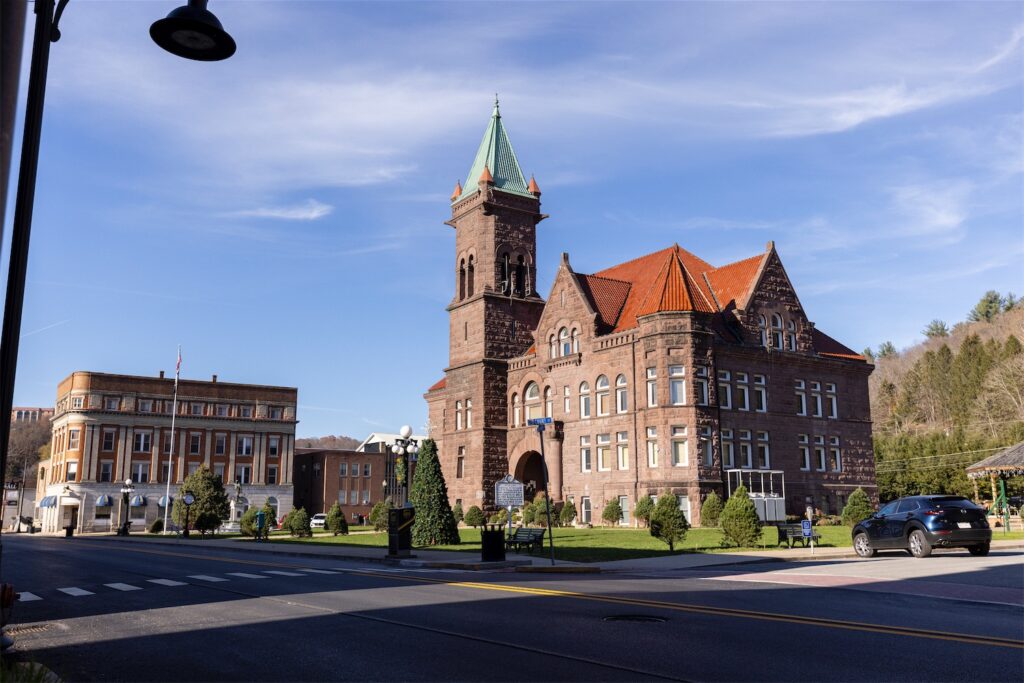 Published on January 1, 2012
Published on January 1, 2012Philippi, West Virginia
Published January 2012 When the City of Philippi hosted the first Lurch Fest in August 2021, City Manager Jeremy Drennen…
-
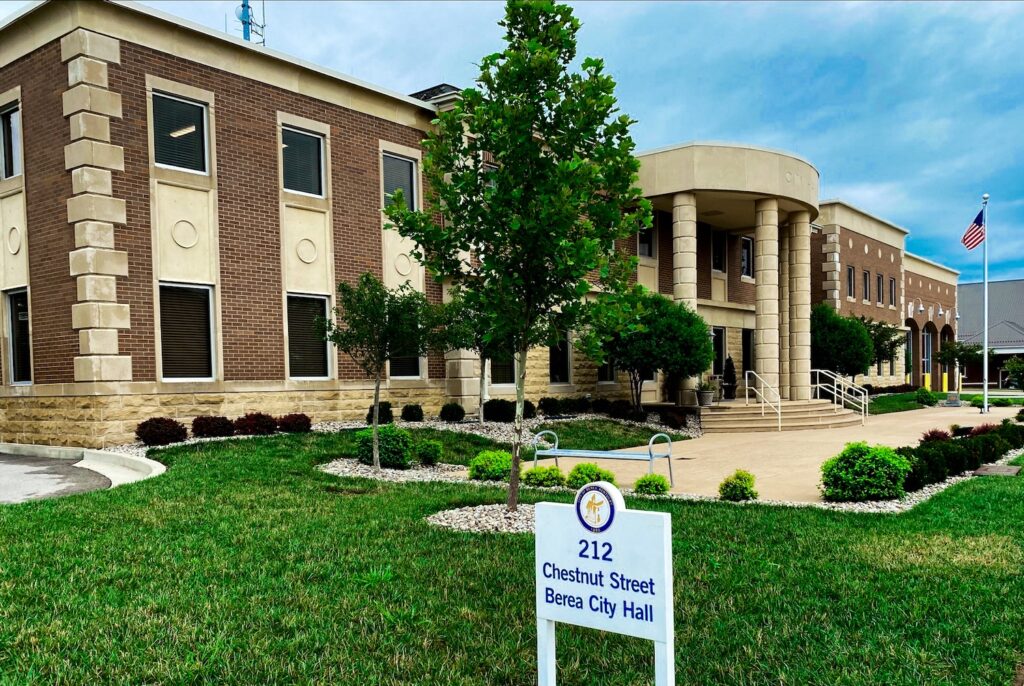 Published on January 1, 2012
Published on January 1, 2012Berea, Kentucky
Published January 2012 By Zachary Hoffman – manager of communications and publications It is said that the past often paints…
-
Published on January 1, 2012
Berlin, Pennsylvania
Published January 2012 The Borough of Berlin, Pennsylvania is located approximately 75 miles southeast of Pittsburgh and is the oldest…
-
Published on December 1, 2011
New Bremen, Ohio
Published December 2011 While New Bremen, Ohio, is a village focused on shaping a prosperous future, it has never lost…
-
Published on October 1, 2011
Coldwater, Michigan
Published October 2011 Coldwater, Mich., population 10,945, is celebrating its 150th birthday this year as a city that has become,…
-
Published on September 1, 2011
Hamilton, Ohio
Published September 2011 The city of Hamilton is the center of government, finance, industry and culture of Butler County, centrally…
-
Published on July 1, 2011
Bedford, Virginia
Published July 2011 Located in west-central Virginia, about 200 miles southwest of Washington, D.C., Bedford is a city that honors…
-
Published on June 1, 2011
Zelienople, Pennsylvania
Published June 2011 The Borough of Zelienople, Pennsylvania is located in Western Butler County and was incorporated into a Borough…
-
Published on February 1, 2011
New Martinsville, West Virginia
Published February 2011 As AMP constructs three hydroelectric facilities on the Ohio River, it's nothing new for one of its…
-
Published on January 1, 2011
Painesville, Ohio
Published January 2011 As the county seat of Lake County, Ohio, the City of Painesville has a long history in…
-
Published on May 1, 2010
Dover, Ohio
Published May 2010 The City of Dover, Ohio, located in Tuscarawas County, is celebrating the 100 year anniversary of its…
-
Published on March 1, 2010
Clinton, Michigan
Published March 2010 The Village of Clinton, Michigan is located in Lenawee County on U.S. Rt. 12 – one of…
-
Published on February 1, 2010
Duncannon, Pennsylvania
Published February 2010 Duncannon, Pa., as council member and local historian Fred Lauster likes to say, "is the spot where…
